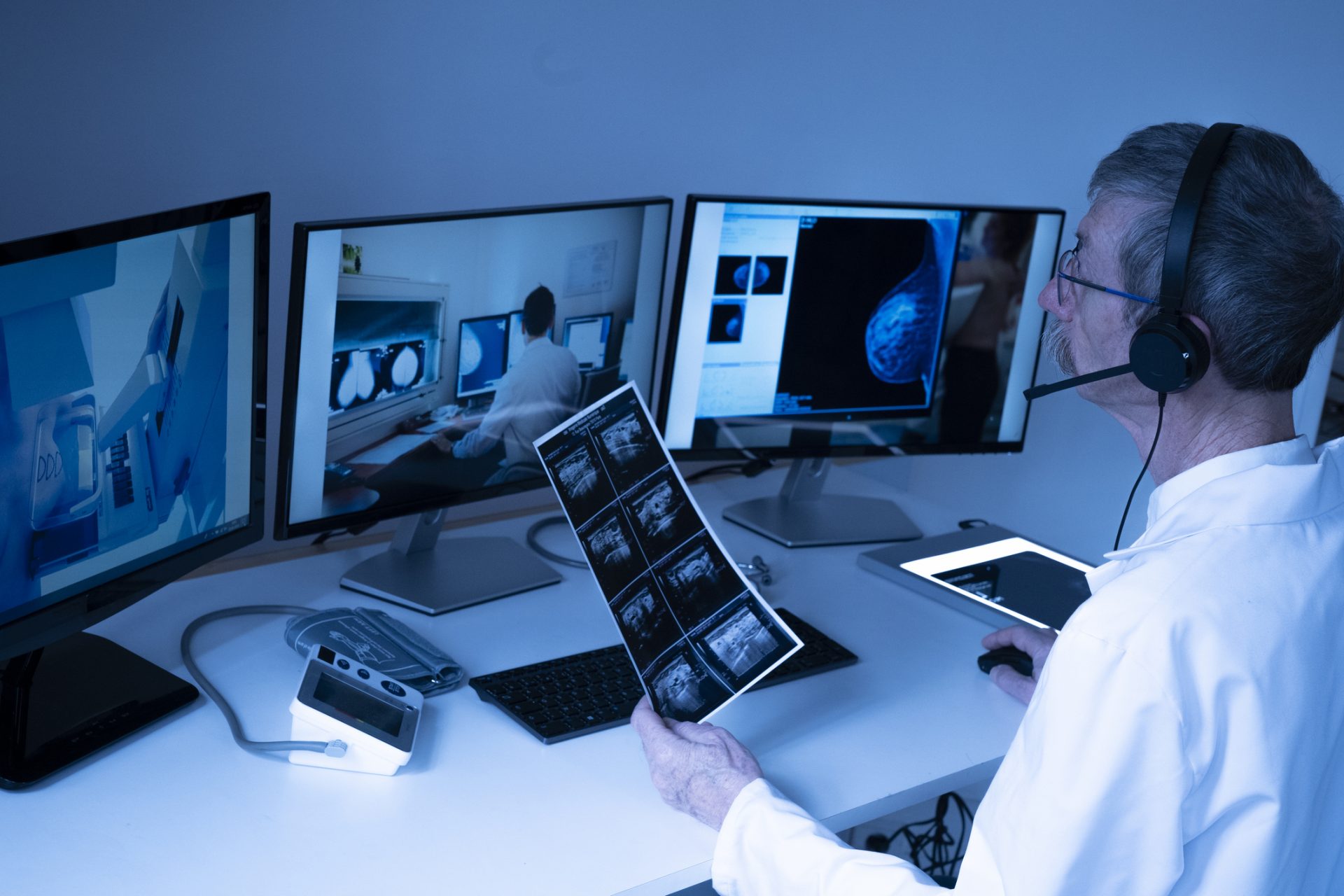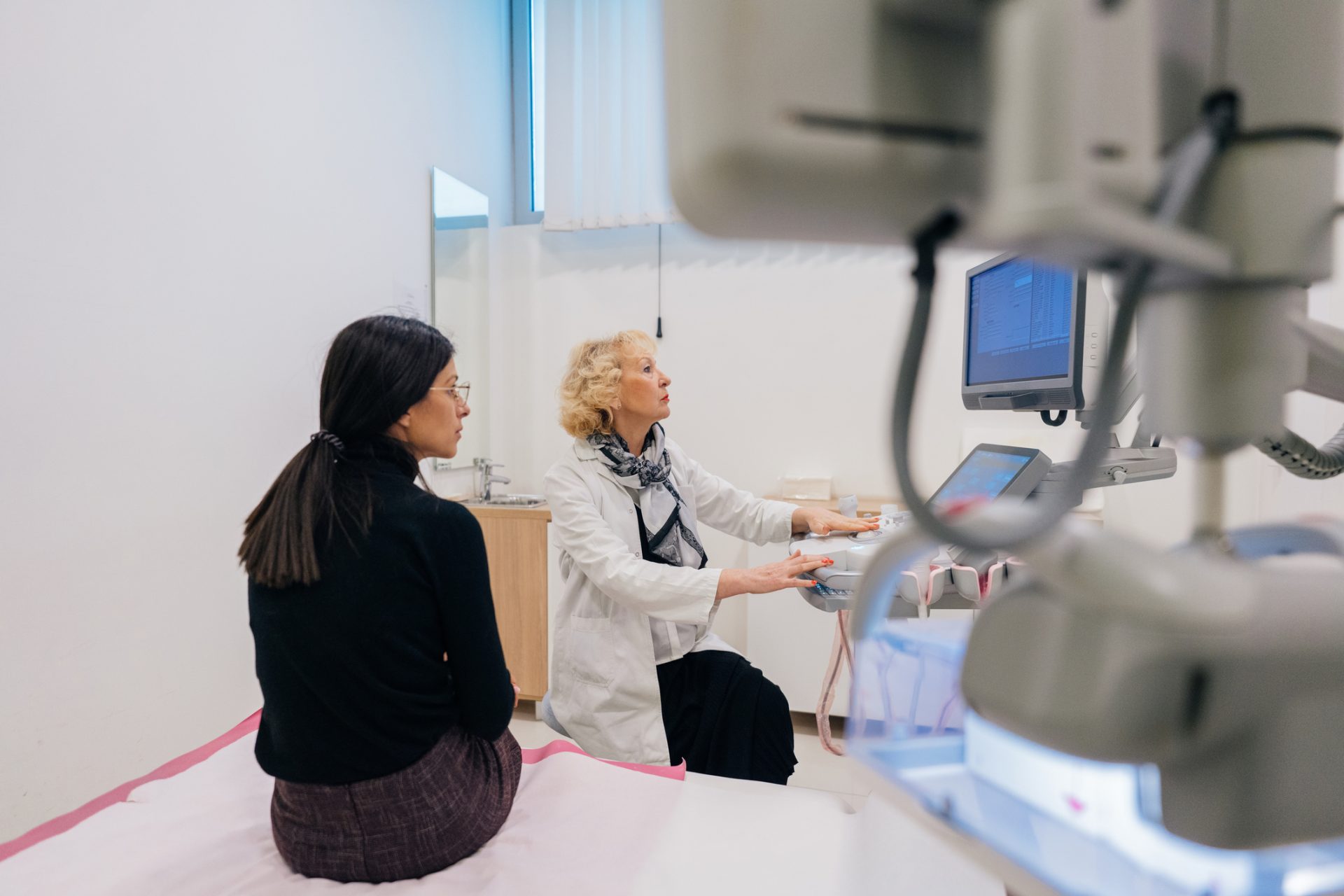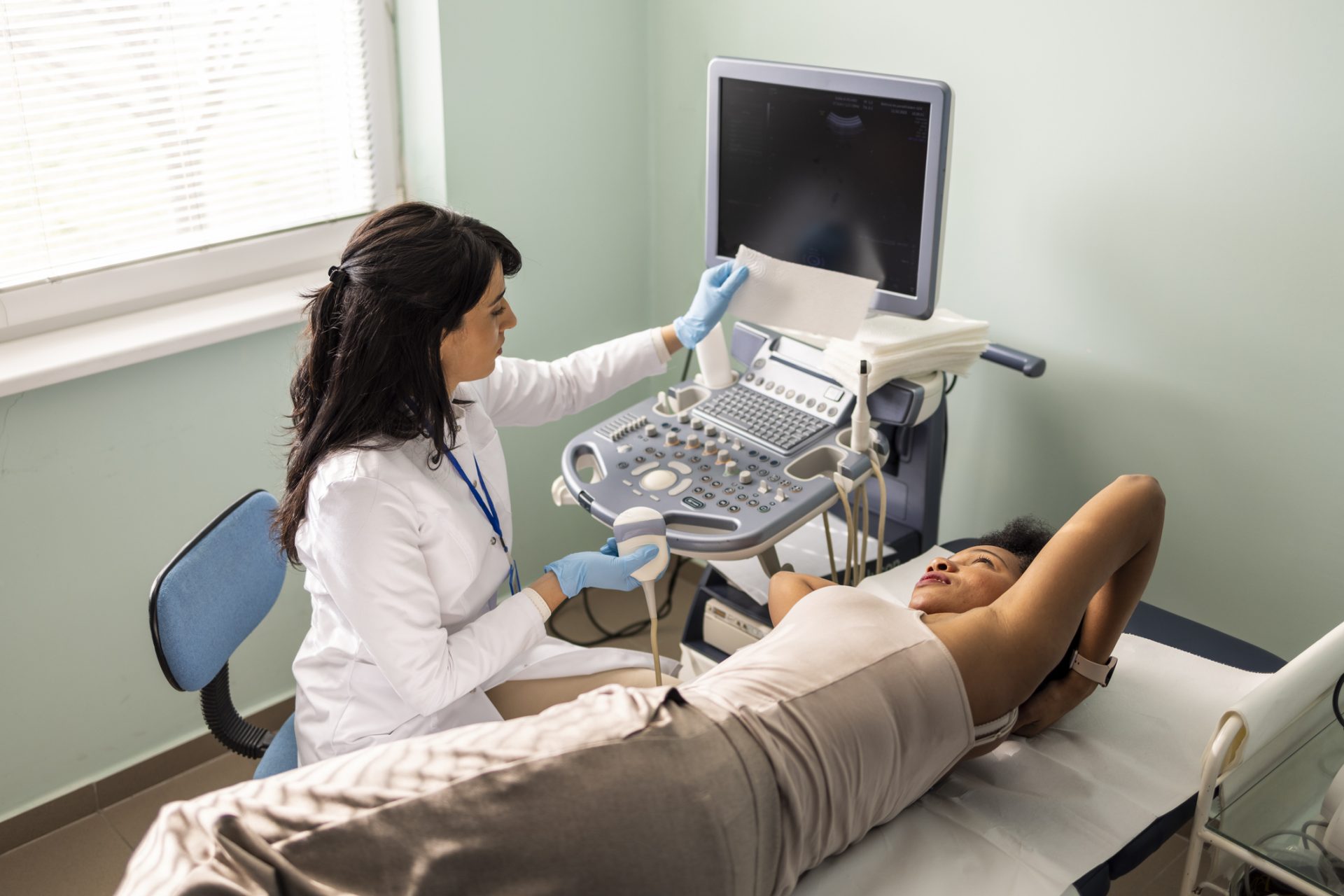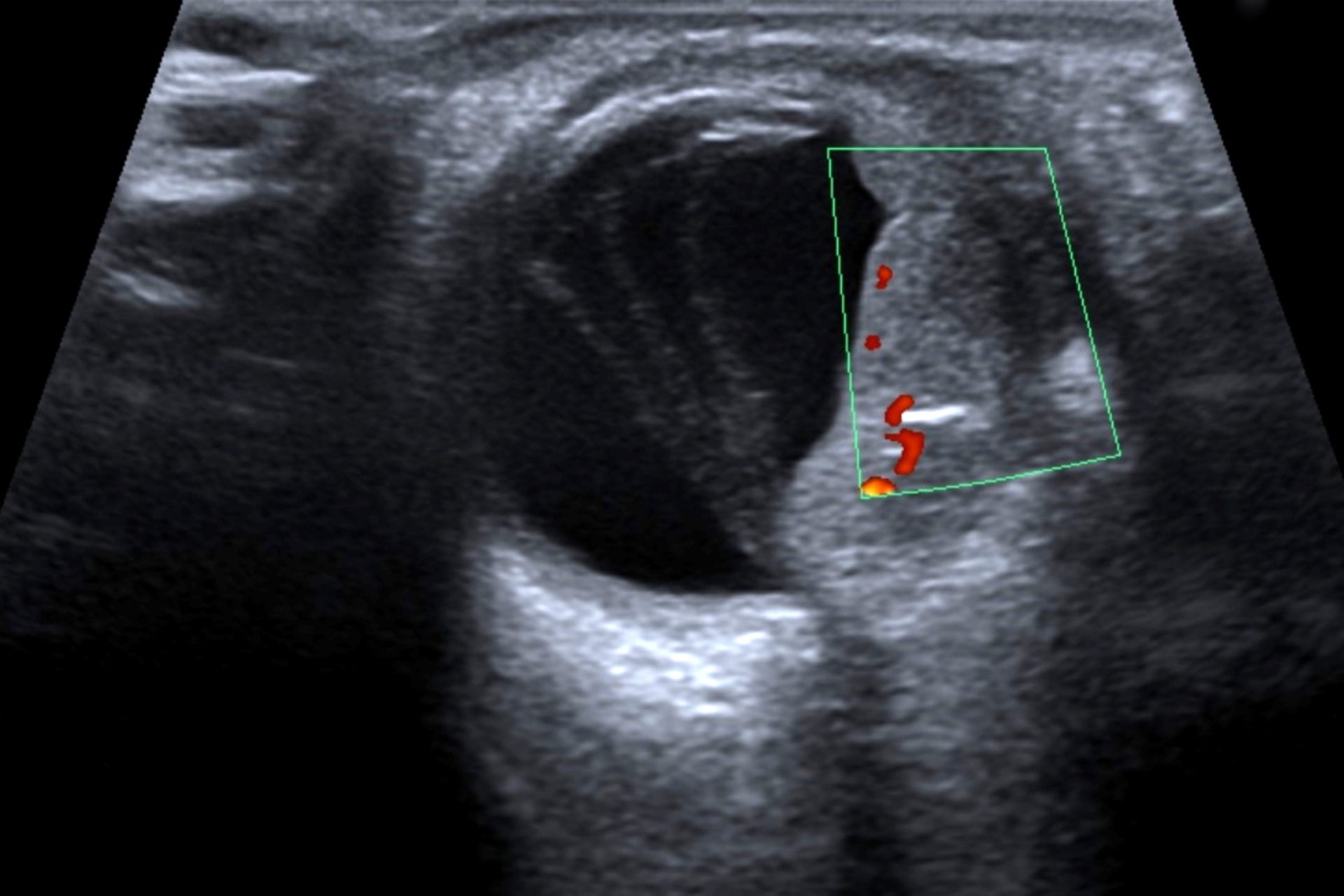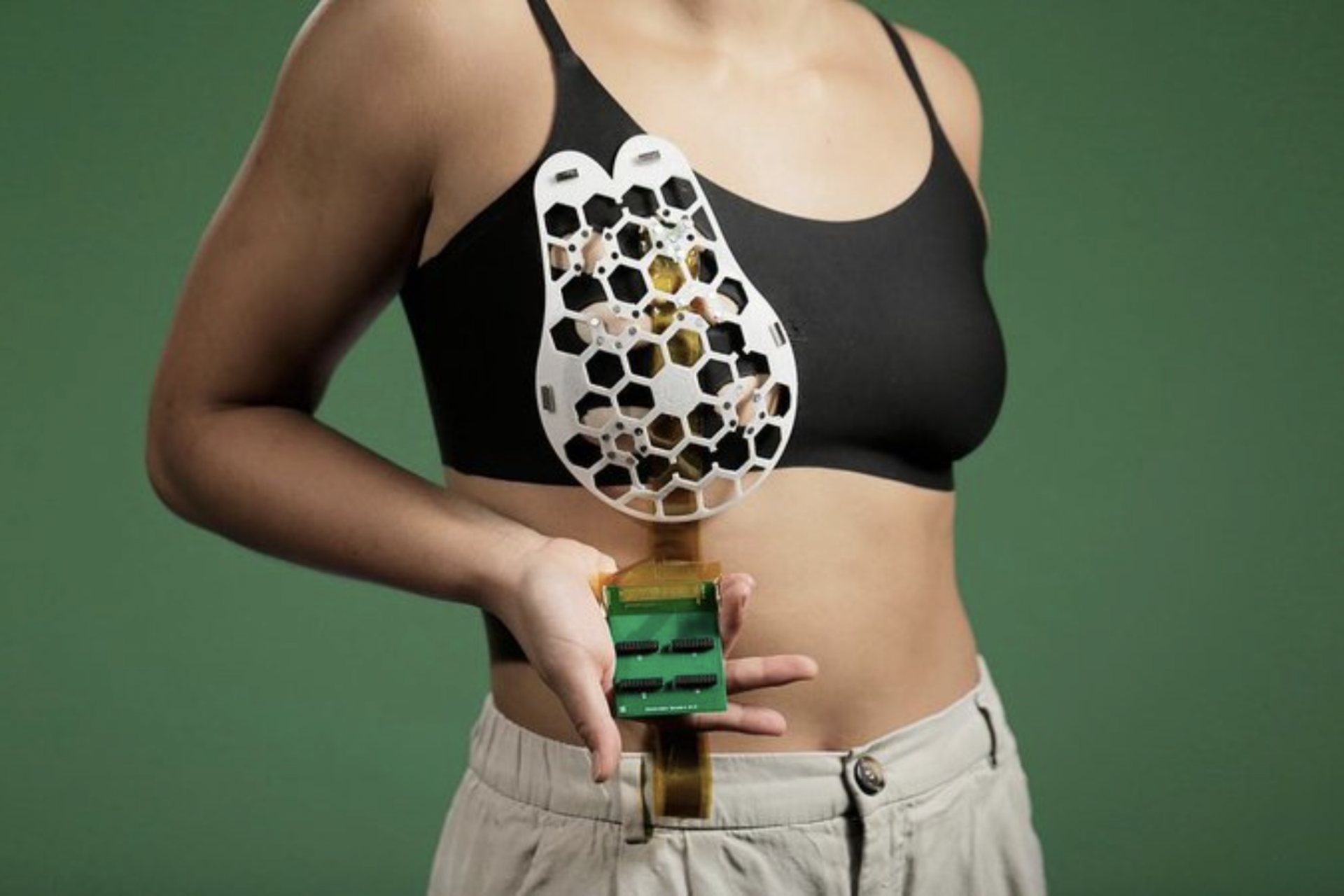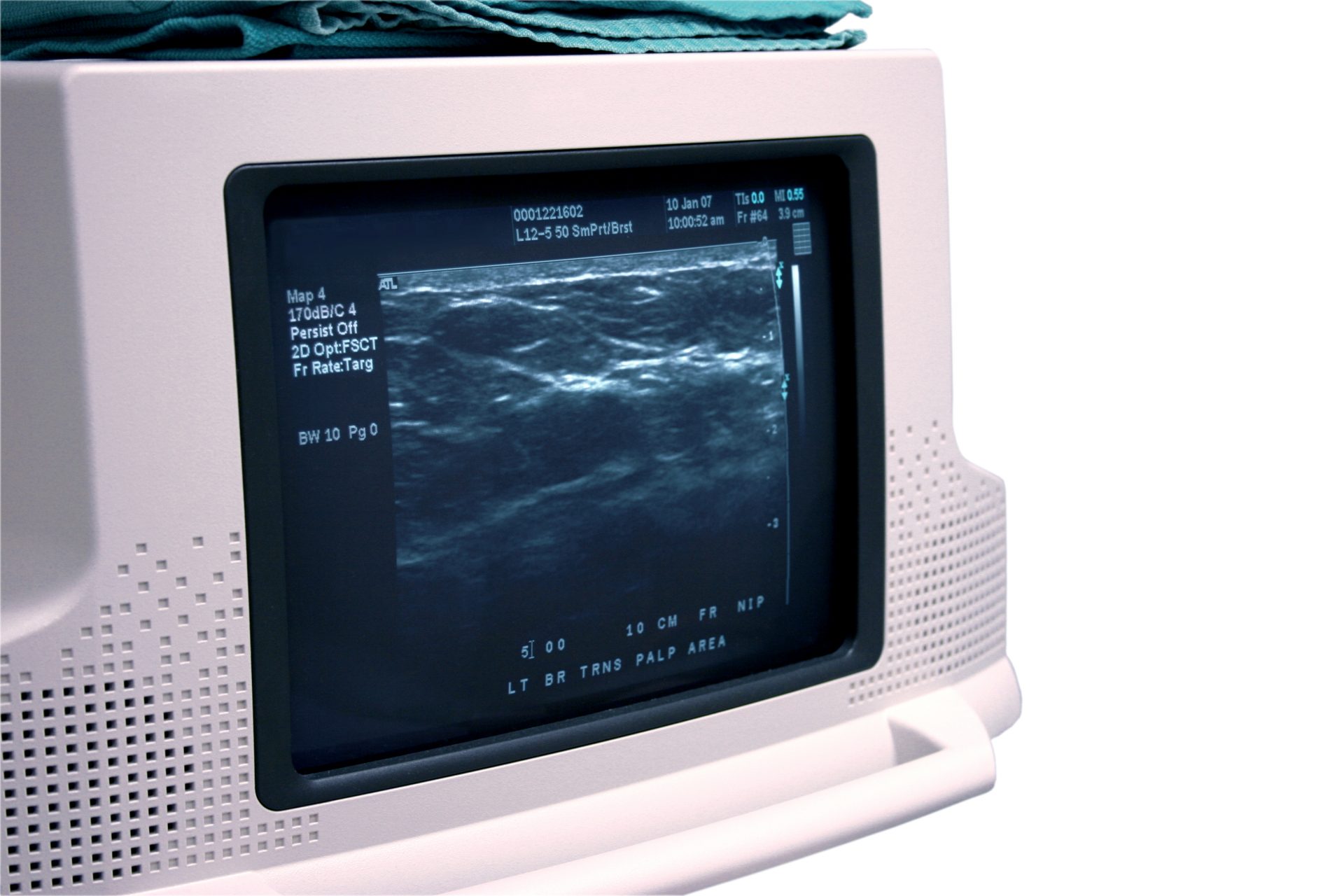Researchers just develop a wearable ultrasound that can detect breast cancer
A new type of wearable tech is the new key to winning the battle against breast cancer and it just might save your life or the life of a loved one in the future. Here’s what you’ll want to know about this new device.
Breast cancer is one of the most survivable forms of the disease but only if it's caught in the earliest stages. The survival rate when detected early is 100% according to a press release on the new wearable tech by MIT News.
However, the survival rate drops to about 25% for tumors that are discovered in later stages and it was these odds that a group of scientists were hoping to improve when they began developing a new type of ultrasound technology.
Researchers at the Massachusetts Institute of Technology (MIT) have developed a wearable ultrasound that can be put in a bra and used to monitor high-risk breast cancer patients between their regular mammograms.
The press release on the ultrasound device noted that it was flexible enough to conform to a bra while still allowing for the ultrasound machine to capture images of breast tissue at a variety of differing angles.
Researchers just completed a study on the new technology's effectiveness and found it was as good as the ultrasound probes being used in medical facilities to look for breast cancer in women.
“We changed the form factor of the ultrasound technology so that it can be used in your home,” explained Canan Dagdeviren, an associate professor at MIT who worked on the new ultrasound device and lead the study on the effectiveness of the machine.
“It’s portable and easy to use, and provides real-time, user-friendly monitoring of breast tissue,” Dagdeviren added.
Dagdeviren took inspiration for his new device after his late aunt was diagnosed with late-stage breast cancer despite the regular screenings and said his goal was to help those patients who are most at risk.
“With more frequent screening,” Dagdeviren said, “our goal is to increase the survival rate to up to 98 percent.” And that goal is certainly attainable if the researcher's new device is as good as his study found.
Using the device in their study, researchers were able to create “sufficient contrast resolution” to see cysts as small as 0.3 centimeters or 0.11 inches in diameter in the breast and concluded their first-of-its-kind technology was effective.
The ultrasound is shaped like a honeycomb and made from several 3D-printed pieces. It’s based on the same systems used in medical centers but it employs a new type of piezoelectric material that allowed researchers to miniaturize the scanner.
The ultrasound is fixed to a tracker that can be moved around the device to six different positions according to the MIT News press release and it can be rotated to capture a lot of different angles by the wearer.
“This technology provides a fundamental capability in the detection and early diagnosis of breast cancer, which is key to a positive outcome,” said study co-author and Dean of Engineering at MIT Anantha Chandrakasan.
Photo Credit: Wiki Commons
“This work will significantly advance ultrasound research and medical device designs, leveraging advances in materials, low-power circuits, AI algorithms, and biomedical systems,” Chandrakasan added.
There was no word on when the new ultrasound tech would be available to the public but it certainly will prove to be a game-changing device that cuts down on the obstacles that prevent women from early diagnosis of breast cancer.
More for you
Top Stories








